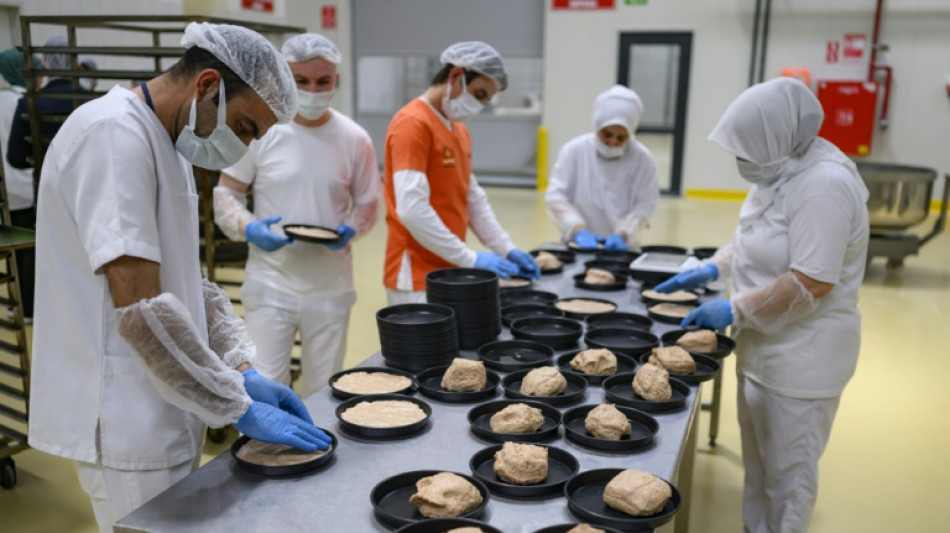
-
 Pro-Trump nationalist to take over as Poland's new president
Pro-Trump nationalist to take over as Poland's new president
-
Nawrocki: nationalist historian becomes Poland's president

-
 Lavish 'Grand Mariage' weddings celebrate Comoros tradition, society
Lavish 'Grand Mariage' weddings celebrate Comoros tradition, society
-
Russian cover bands take centre stage as big names stay away

-
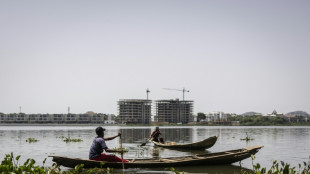 Squeezed by urban growth, Nigerian fishermen stick to tradition
Squeezed by urban growth, Nigerian fishermen stick to tradition
-
One dead, nine injured in wildfire in southern France
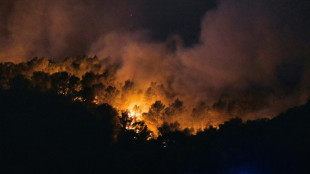
-
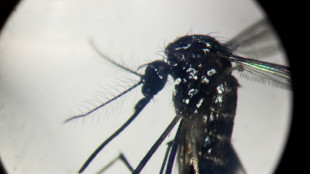 Chikungunya in China: What you need to know
Chikungunya in China: What you need to know
-
Hong Kong's Cathay Pacific unveils deal to buy 14 Boeing jets

-
 US envoy Witkoff arrives in Russia ahead of sanctions deadline
US envoy Witkoff arrives in Russia ahead of sanctions deadline
-
Indian army searches for scores missing after deadly Himalayan flood
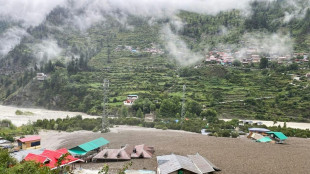
-
 Steeper US tariffs take effect on many Brazilian goods
Steeper US tariffs take effect on many Brazilian goods
-
Bangladesh mystic singers face Islamist backlash
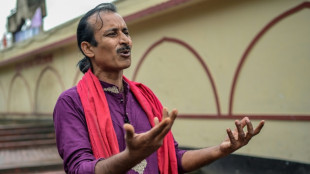
-
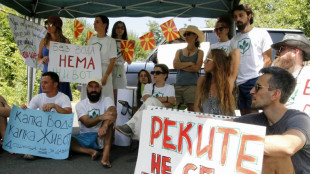 'Not backing down': activists block hydro plants in N.Macedonia
'Not backing down': activists block hydro plants in N.Macedonia
-
Fire in southern France burns 11,000 hectares, injures nine
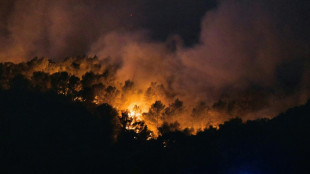
-
 Rugby Australia relaxes 'redundant' limit on foreign-based players
Rugby Australia relaxes 'redundant' limit on foreign-based players
-
Son draws fans to airport as LAFC calls Wednesday news conference

-
 Investors walk fine line as Trump tariffs temper rate hopes
Investors walk fine line as Trump tariffs temper rate hopes
-
Son draws fans to airport even though MLS deal not official

-
 Fritz, Shelton set up all-American Toronto semi-final
Fritz, Shelton set up all-American Toronto semi-final
-
How Trump's love for TV is shaping US diplomacy

-
 Sizzling Osaka to face Tauson in WTA Canadian Open semis
Sizzling Osaka to face Tauson in WTA Canadian Open semis
-
Fritz banishes brain freeze to advance into ATP Toronto semis

-
 NFL buys 10% stake in ESPN, which buys NFL Network, RedZone
NFL buys 10% stake in ESPN, which buys NFL Network, RedZone
-
Trump targets tariff evasion, with eye on China

-
 Trump seeks sway over Los Angeles Olympics with new task force
Trump seeks sway over Los Angeles Olympics with new task force
-
Sean 'Diddy' Combs seeking Trump pardon: lawyer

-
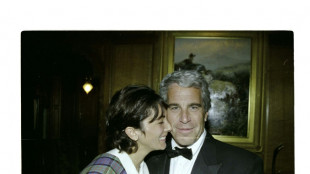 Epstein accomplice Maxwell opposes unsealing grand jury transcripts
Epstein accomplice Maxwell opposes unsealing grand jury transcripts
-
Russian oligarch's superyacht to be auctioned in US

-
 Tauson ousts Keys and advances to WTA Canadian Open semis
Tauson ousts Keys and advances to WTA Canadian Open semis
-
US axes mRNA vaccine contracts, casting safety doubts

-
 US envoy Witkoff to visit Moscow ahead of sanctions deadline
US envoy Witkoff to visit Moscow ahead of sanctions deadline
-
Wall Street stocks end lower as rally peters out

-
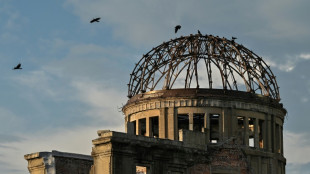 Hiroshima marks 80 years as US-Russia nuclear tensions rise
Hiroshima marks 80 years as US-Russia nuclear tensions rise
-
US envoy Witkoff to visit Moscow on Wednesday

-
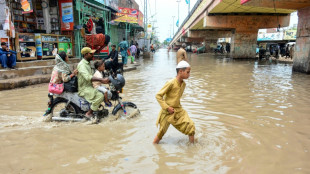 Summer 2025 already a cavalcade of climate extremes
Summer 2025 already a cavalcade of climate extremes
-
Eduardo Bolsonaro: 'provocateur' inflaming US-Brazil spat

-
 Trump says pharma, chips tariffs incoming as trade war widens
Trump says pharma, chips tariffs incoming as trade war widens
-
NASA races to put nuclear reactors on Moon and Mars

-
 OpenAI releases free, downloadable models in competition catch-up
OpenAI releases free, downloadable models in competition catch-up
-
100 missing after flash flood washes out Indian Himalayan town
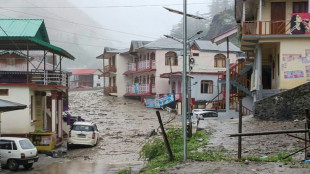
-
 Czech driverless train hits open track
Czech driverless train hits open track
-
Jobe Bellingham 'anxious' about following Jude at Dortmund

-
 US trade gap shrinks on imports retreat as tariffs fuel worries
US trade gap shrinks on imports retreat as tariffs fuel worries
-
Meta says working to thwart WhatsApp scammers

-
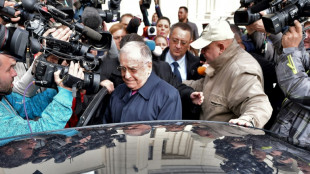 Ion Iliescu: democratic Romania's first president
Ion Iliescu: democratic Romania's first president
-
Plastic pollution treaty talks open with 'global crisis' warning
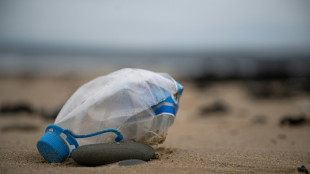
-
 US data deflates stocks rebound
US data deflates stocks rebound
-
S.Africa urges more countries to stand up to Israel's 'genocidal activities'

-
 Probe blames operator for 'preventable' Titanic sub disaster
Probe blames operator for 'preventable' Titanic sub disaster
-
Belgium's Evenepoel to join Red Bull-Bora in 2026

| SCU | 0% | 12.72 | $ | |
| JRI | 0.45% | 13.26 | $ | |
| CMSD | -0.51% | 23.51 | $ | |
| BCE | 1.06% | 23.56 | $ | |
| SCS | -3.88% | 15.96 | $ | |
| BCC | 4.68% | 86.77 | $ | |
| RIO | -0.5% | 59.7 | $ | |
| CMSC | 0% | 23.07 | $ | |
| NGG | -0.51% | 72.28 | $ | |
| GSK | -0.96% | 37.32 | $ | |
| RBGPF | -0.03% | 74.92 | $ | |
| RYCEF | -1.19% | 14.33 | $ | |
| AZN | -0.15% | 74.48 | $ | |
| BTI | 0.52% | 55.84 | $ | |
| RELX | -2.73% | 50.59 | $ | |
| VOD | 0.54% | 11.1 | $ | |
| BP | 3.3% | 33.6 | $ |

Ancient bread rises again as Turkey recreates 5,000-year-old loaf
In the early Bronze Age, a piece of bread was buried beneath the threshold of a newly built house in what is today central Turkey.
Now, more than 5,000 years later, archaeologists have unearthed it, and helped a local bakery to recreate the recipe -- with customers lining up to buy it.
Round and flat like a pancake, 12 centimetres (five inches) in diameter, the bread was discovered during excavations at Kulluoba, a site near the central Anatolian city of Eskisehir.
"This is the oldest baked bread to have come to light during an excavation, and it has largely been able to preserve its shape," said Murat Turkteki, archaeologist and director of the excavation.
"Bread is a rare find during an excavation. Usually, you only find crumbs," he told AFP.
"But here, it was preserved because it had been burnt and buried," he said.
The bread was charred and buried under the entrance of a dwelling built around 3,300 BC.
A piece had been torn off, before the bread was burnt, then buried when the house was built.
"It makes us think of a ritual of abundance," Turkteki said.
- 'Moved by this discovery' -
Unearthed in September 2024, the charred bread has been on display at the Eskisehir Archaeological Museum since Wednesday.
"We were very moved by this discovery. Talking to our excavation director, I wondered if we could reproduce this bread," said the city's mayor, Ayse Unluce.
Analyses showed that the bread was made with coarsely ground emmer flour, an ancient variety of wheat, and lentil seeds, with the leaf of an as yet undetermined plant used as yeast.
Ancient emmer seeds no longer exist in Turkey.
To get as close as possible to the original recipe, the municipality, after analysing the ancient bread, decided to use Kavilca wheat, a variety that is close to ancient emmer, as well as bulgur and lentils.
At the Halk Ekmek bakery (meaning "People's Bread" in Turkish), promoted by the municipality to offer low-cost bread, employees have been shaping 300 loaves of Kulluoba by hand every day.
"The combination of ancestral wheat flour, lentils and bulgur results in a rich, satiating, low-gluten, preservative-free bread," said Serap Guler, the bakery's manager.
The first Kulluoba loaves, marketed as 300-gramme (11-ounce) cakes that cost 50 Turkish lira (around $1.28), sold out within hours.
"I rushed because I was afraid there wouldn't be any left. I'm curious about the taste of this ancient bread," said customer Suzan Kuru.
- Drought resistant -
In the absence of written traces, the civilisation of Kulluoba remains largely mysterious.
In the Bronze Age, the Hattians, an Anatolian people who preceded the Hittites, lived in the Eskisehir region.
"Kulluoba was a medium-sized urban agglomeration engaged in commercial activities, crafts, agriculture and mining. There was clearly a certain family and social order," said archaeologist Deniz Sari.
The rediscovery of the bread has sparked interest in the cultivation of ancient wheats better adapted to drought.
Once rich in water sources, the province of Eskisehir is today suffering from drought.
"We're facing a climate crisis, but we're still growing corn and sunflowers, which require a lot of water," said Unluce, the local mayor.
"Our ancestors are teaching us a lesson. Like them, we should be moving towards less thirsty crops," she added.
The mayor wants to revive the cultivation of Kavilca wheat in the region, which is resistant to drought and disease.
"We need strong policies on this subject. Cultivating ancient wheat will be a symbolic step in this direction," she said.
"These lands have preserved this bread for 5,000 years and given us this gift. We have a duty to protect this heritage and pass it on."
P.AbuBaker--SF-PST
